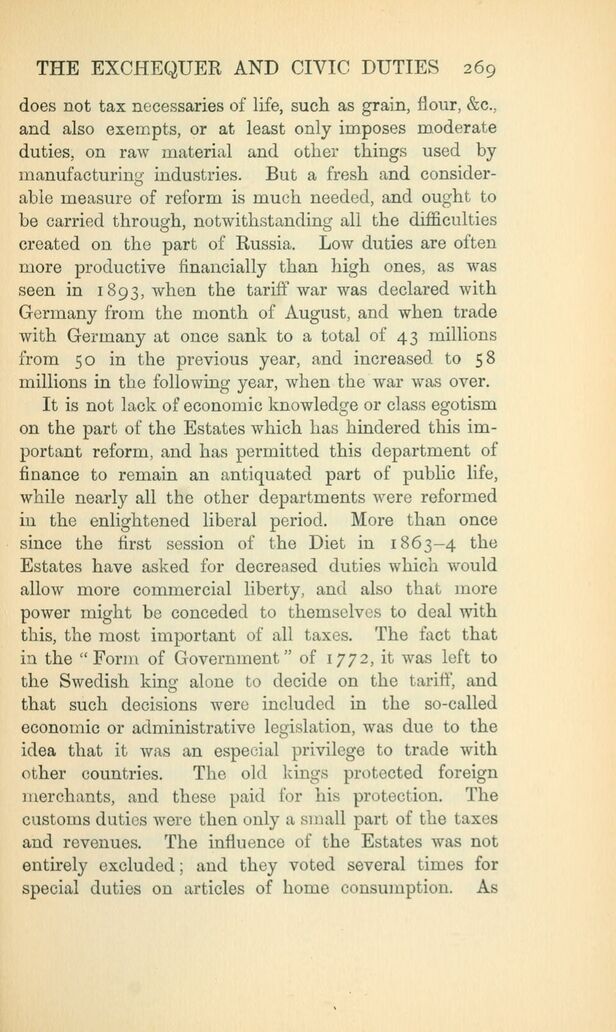
Full resolution (JPEG) - On this page / på denna sida - X. The Exchequer and Civic Duties

<< prev. page << föreg. sida << >> nästa sida >> next page >>
Below is the raw OCR text
from the above scanned image.
Do you see an error? Proofread the page now!
Här nedan syns maskintolkade texten från faksimilbilden ovan.
Ser du något fel? Korrekturläs sidan nu!
This page has been proofread at least once.
(diff)
(history)
Denna sida har korrekturlästs minst en gång.
(skillnad)
(historik)
does not tax necessaries of life, such as grain, flour, &c.,
and also exempts, or at least only imposes moderate
duties, on raw material and other things used by
manufacturing industries. But a fresh and considerable
measure of reform is much needed, and ought to
be carried through, notwithstanding all the difficulties
created on the part of Russia. Low duties are often
more productive financially than high ones, as was
seen in 1893, when the tariff war was declared with
Germany from the month of August, and when trade
with Germany at once sank to a total of 43 millions
from 50 in the previous year, and increased to 58
millions in the following year, when the war was over.
It is not lack of economic knowledge or class egotism
on the part of the Estates which has hindered this
important reform, and has permitted this department of
finance to remain an antiquated part of public life,
while nearly all the other departments were reformed
in the enlightened liberal period. More than once
since the first session of the Diet in 1863-4 the
Estates have asked for decreased duties which would
allow more commercial liberty, and also that more
power might be conceded to themselves to deal with
this, the most important of all taxes. The fact that
in the “Form of Government” of 1772, it was left to
the Swedish king alone to decide on the tariff, and
that such decisions were included in the so-called
economic or administrative legislation, was due to the
idea that it was an especial privilege to trade with
other countries. The old kings protected foreign
merchants, and these paid for his protection. The
customs duties were then only a small part of the taxes
and revenues. The influence of the Estates was not
entirely excluded; and they voted several times for
special duties on articles of home consumption. As
<< prev. page << föreg. sida << >> nästa sida >> next page >>